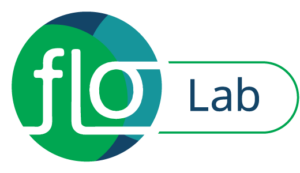About the Lab:
This three-hour Facilitating Learning Online (FLO) Lab is designed to engage post-secondary social science educators and aims to explore the concept of digital scholarship through the lens of digital humanities. 
The workshop’s objective is to enhance participants’ understanding of digital literacy as outlined in British Columbia’s Digital Literacy Framework, with a focus on the critical use of digital resources in scholarship, teaching, and learning.
A key component of the lab is the exploration of digital humanities tools, including text analysis, mapping, and data visualization. Through hands-on engagement with these tools, participants will discuss their application in social science research and teaching. This aligns with the Digital Literacy Framework’s emphasis on the practical application of digital tools and resources.
Participants will also conceptualize a digital scholarship project relevant to their research or teaching interests. This activity encourages participants to apply their learning from the lab to their own work, fostering innovation and creativity in digital scholarship. While parts of this session might be recorded, participants are encouraged to attend all three hours to get the most out of the lab.
Learning Outcomes:
- Understand the concept of digital scholarship: participants will gain a clear understanding of what constitutes digital scholarship and its significance in the social sciences.
- Explore digital humanities tools: participants will learn about various digital humanities tools and resources that can be integrated into social science research and teaching.
- Develop digital scholarship projects: participants will conceptualize a digital scholarship project relevant to their research or teaching interests.
Register now!
This session may be recorded, archived, and made available publicly on BCcampus.ca. By participating in this session, you acknowledge you are aware your participation may be recorded and the recording will be openly available.
About the Facilitator:
Your FLO Facilitator for this session is Dr. Siobhán Rachel Wittig McPhee.
Siobhán (she/her) is an associate professor of teaching at the University of British Columbia. In her role, Siobhán sees herself as an academic and an educator, dedicated to encouraging students and equipping them with the tools they need to succeed academically and in life. With an interdisciplinary background, Siobhán has the capability to explore and deliver alternative and engaging approaches to learning.
Siobhán’s focus on teaching and learning centres around the development of online tools, activities, and experiential learning techniques. Her educational research includes location-aware technologies, augmented reality, and alternative methods of knowledge mobilization, especially with application of digital literacy and digital scholarship. Her research explores interactive, place-based digital storytelling to generate empathy and engagement in social justice issues. It is this research that Siobhán is drawing on in facilitating the FLO Lab.
About the Session
Do you want to create a learning environment that considers the diverse lived experiences of your students? In this three-hour Facilitating Learning Online (FLO) Lab session, we will start by exploring current frameworks for course design (such as Universal Design for Learning and quality assurance) and determine what is “missing” with these frameworks from an equity, diversity and inclusion (EDI) perspective. We will then explore at least two different approaches to incorporate principles of EDI into the course design and development process. We will conclude with space for critical reflection and co-creation of strategies for implementing these changes. 
This session will be beneficial for anyone who is interested in moving away from the status quo in course design and becoming an agent of change!
Please note: This session will not be recorded. Registrants should plan to attend the full three hours for an optimal learning experience.
Learning Objectives
By the end of the session, participants will be able to:
- Explain shortcomings of existing approaches or frameworks to course design from an EDI perspective
- Discuss the challenges they may encounter in their current course design process from an individual, interpersonal, and institutional perspective, and how to overcome them
- Reflect on how to apply a critical, collaborative and wholistic approach to their course design and development process
Register now!
About the Facilitator
Randeep Nota (she/her) is a second-generation Punjabi settler. She is a consultant whose work comprises educational development and program and policy reviews. She is concurrently pursuing her PhD at the University of Toronto, focused on work, learning, and social change. Randeep has experience working in post-secondary institutions in British Columbia, Alberta, and Ontario in various teaching, staff, and management roles. She has researched and presented nationally and internationally on topics including anti-racism policies and practices in the post-secondary sector; incorporating equity, diversity, and inclusion practices in course design; the internationalization of higher education; the use of technology in post-secondary teaching and learning; and the (un)ethical use of surveillance in learning. Prior to her work as an educational consultant, Randeep provided pedagogical consultations for credit and non-credit, online and hybrid courses, and worked on program development, and quality assurance reporting for diploma and degree-granting programs.
